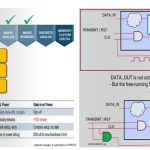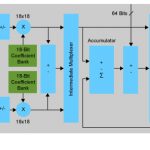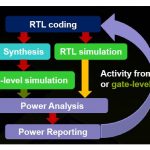Well, despite all the arguments in the blogosphere about what process node palladium’s silicon is, and whether the design team is competent, and why it reports into sales…Cadence has announced their latest big revision of Palladium. Someone seems to be able to get things done. Of course it is bigger and faster and … Read More
Tag: rtl
Reliability sign-off has several aspects – One Solution
Here, I am talking about reliability of chip design in the context of electrical effects, not external factors like cosmic rays. So, the electrical factors that could affect reliability of chips could be excessive power dissipation, noise, EM (Electromigration), ESD (Electrostatic Discharge), substrate noise coupling and… Read More
Innovation + Thoughtful Management = Productive Expansion
After looking at various aspects of this company, to sum up, I couldn’t find any better statement than this; thoughtful management here is actually leadership with passion which achieves tangible results. This reflects in the methodology of doing things in this company which has given it a place among top EDA companies in a span… Read More
RTL Design For Power
My Samsung Galaxy Note II lasts about two days on a single battery charge, which is quite the improvement from the Galaxy Note I with only a one day battery charge. Mobile SoCs are being constrained by battery life limitations, and consumers love longer-laster devices.
There are at least two approaches to Design For Power:
- Gate-level
From Layout Sign-off to RTL Sign-off
This week, I had a nice opportunity meeting Charu Puri, Corporate Marketing and Sushil Gupta, V.P. & Managing Director at Atrenta, Noida. Well, I know Sushil since 1990s; in fact, he was my manager at one point of time during my job earlier than Cadence. He leads this large R&D development centre, consisting about 200 people… Read More
The fixed and the finite: QoR in FPGAs
There is an intriguingly amorphous term in FPGA design circles lately: Quality of Results, or QoR. Fitting a design in an FPGA is just the start – is a design optimal in real estate, throughput, power consumption, and IP reuse? Paradoxically, as FPGAs get bigger and take on bigger signal processing problems, QoR has become a larger… Read More
Efficient Power Analysis and Reduction at RTL Level
It’s a classic and creative example of design and EDA tool community getting together, exploiting tool capabilities and developing flows which add value to all stake holders including the end consumer. We know power has become extremely important for battery life in smart phones, high performance servers, workstations, notebooks… Read More
Atrenta: Mentor/Spyglass Power Signoff…and a Book
Today Atrenta and Mentor announced that they were collaborating to enable accurate, signoff quality power estimation at the RTL for entire SoCs. The idea is to facilitate RTL power estimation for designs of over 50M gates running actual software loads over hundreds of millions of cycles, resulting in simulation datasets in the… Read More
RTL Signoff Theater
We have talked for years about RTL signoff, the idea that a design could be finalized at the RTL level and then most of the signoff would take place there. Then the design would be passed to a physical implementation team who would not expect to run into any problems (such as routing congestion, missing the power budget or similar problems).… Read More
Beyond one FPGA comfort zone
Unless you are a small company with one design team, the chance you have standardized on one FPGA vendor for all your needs, forever and ever, is unlikely. No doubt you probably have a favorite, because of the specific class of part you use most often or the tool you are most familiar with, but I’d bet you use more than one FPGA vendor routinely.… Read More











